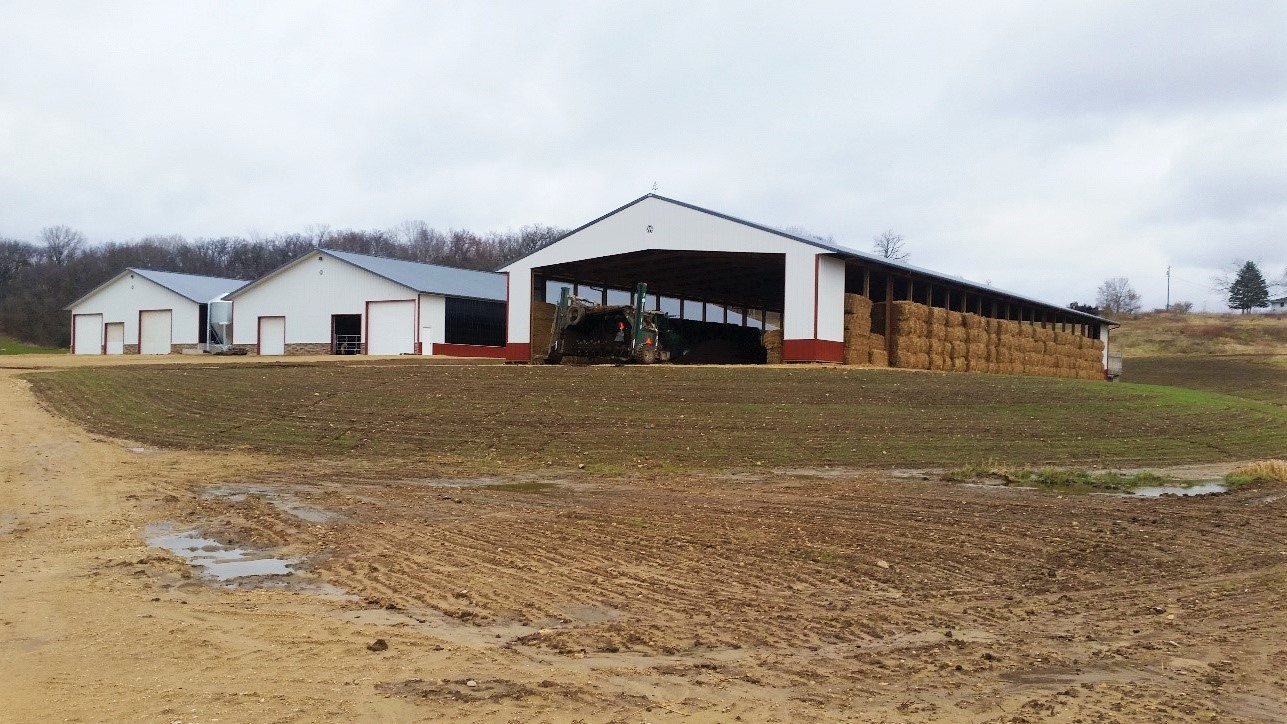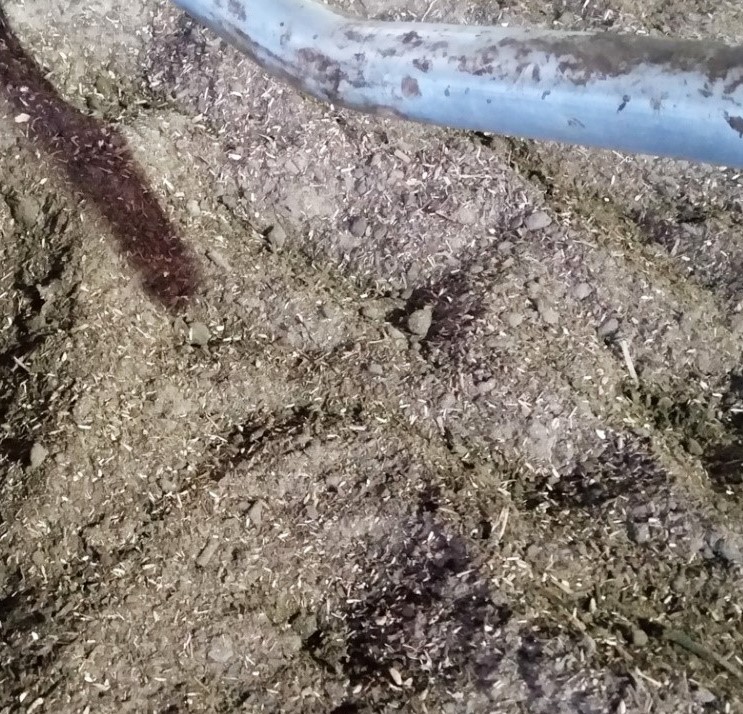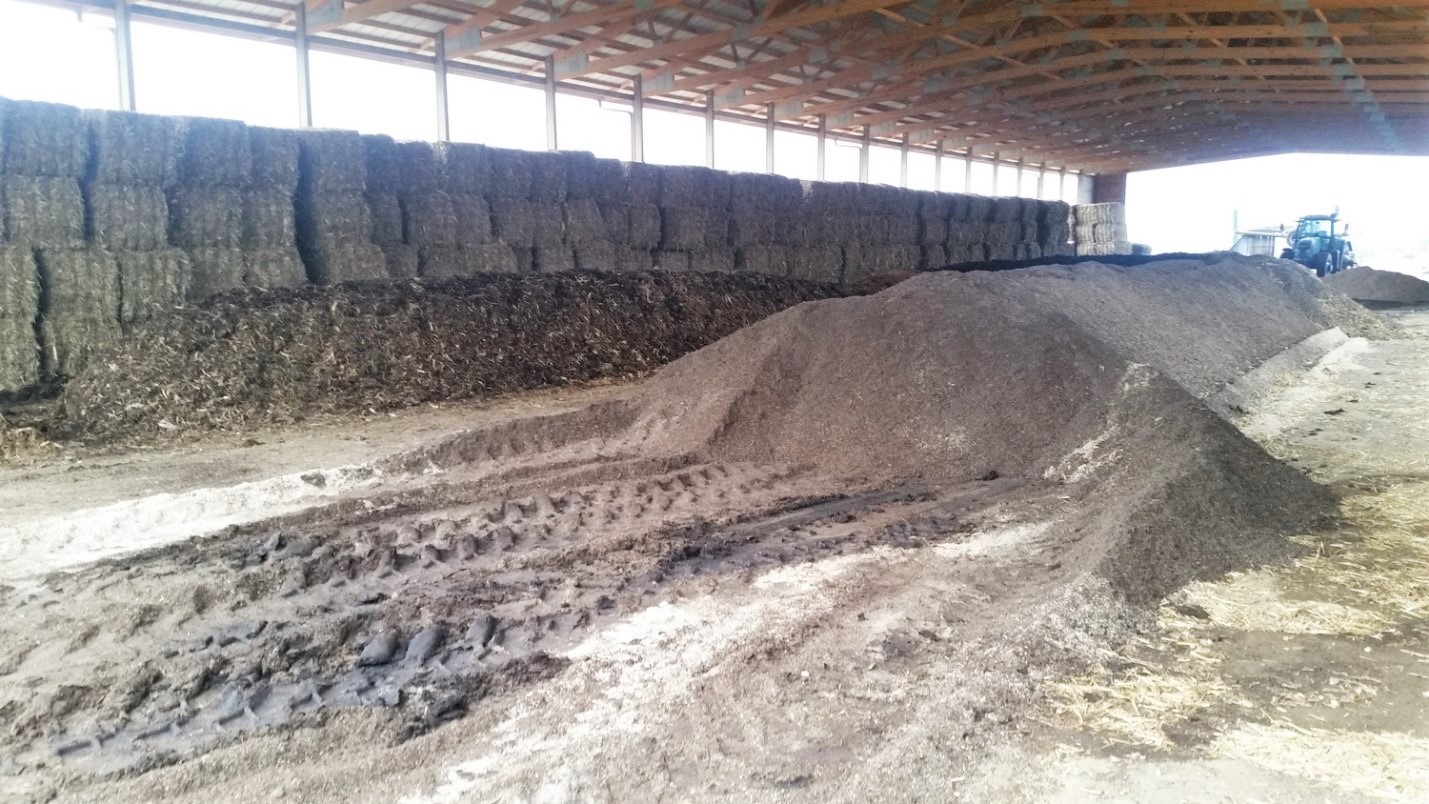Berryridge Farms near Waunakee, Wisconsin, has been in the Endres family for over 100 years. What started small has now expanded into a thriving dairy cattle business, with sustainable operations and practices to keep up pace.
MSA has partnered with the Endres family for many years, first helping to create a larger space for long-term manure storage, then in 2014, assisting the farm with the design and construction of a new tunnel-ventilated freestall barn and expansion of their manure transfer system to connect to the existing system. When Berryridge’s custom heifer raiser contacted the family to let them know he was retiring, they decided they would relocate all of the heifers back to the home farm, a move that would require upgrading a number of the farm’s vital systems. Berryridge contacted MSA to help.

Three structures constructed in 2016, L to R: young heifer housing on bedded pack, older heifers in freestall barn & composting facility
In order to maintain the same high-quality genetics of their herd, proper housing and the ability to more easily move and manage heifers was the first goal. The second goal was to be able to house heifers from 200 pounds to breeding in two buildings with the ability to add one more heifer barn as well as a new lactating cow freestall. In the planning discussions, it was determined the young heifer barn would be group housing on bedded pack and the second building for older heifers would be freestalls – both barns utilizing a unique animal bedding material: compost.
Bedded pack manures
Enter Yahara Pride Farms, a farmer-led, not-for-profit organization founded in 2012, working to improve soil and water quality within Dane County. Berryridge’s Jeff Endres has been an integral part of the organization since its inception and together, the Yahara Pride farmers practice and educate soil health, effective manure management, conservation and advances in watershed quality.

Finished compost mixed with wood shavings & sand
In 2014, MSA assisted Yahara Pride Farms in acquiring a Sustainable Agriculture Research and Education (SARE) Grant to pilot on-farm composting as a way to transport nutrients out of a watershed in a cost-effective manner. One of the concepts that came out of the pilot study was the ability to cut the composting process off early to maintain a high fiber product that could be used as bedding. This notion was further improved in 2015 by experimenting with creating the right compost mixture to make a high quality, sustainable bedding product to be incorporated into the family’s new heifer barns.
The composting concept was also added to the project because a third structure would be planned as a roof over the windrow composting area. Berryridge has had much success with composting, but trying to compost in the outdoor elements is challenging. By placing a roof over the composting process, we were able to control the amount of water incorporated into the mix, which allowed the Endres family to better manage the process and create a longer-lasting product. The key to this roof structure was to construct it so if composting was removed from the management of the farm, the structure could be effectively converted to another heifer raising barn.
The last piece of the Berryridge farm development was to construct a new lactating cow freestall barn. Placing this structure on site was key to completing the stormwater best management practice plan and allowing the farm to have the greatest buildout and production potential. MSA assisted Berryridge with site grading plans, stormwater and erosion control plans, permits, regulation compliance, composting process and management, and construction observation.
Since implementation of the intensive composting practices at Berryridge, Endres and Yahara Pride Farms have been taking knowledge gained and sharing it with the community, offering a certification program, farm tours and educational events, a cost-share program, equipment rental and pilot studies of their own related to composting and cover crops. They do this as supported by the Clean Lakes Alliance, dedicated to improving the water quality of the lakes, streams and wetlands of the Yahara River Watershed.

Composting building lined with large wheat straw bales, showing new compost windrow on the left and finished bedding compost windrow in the center
